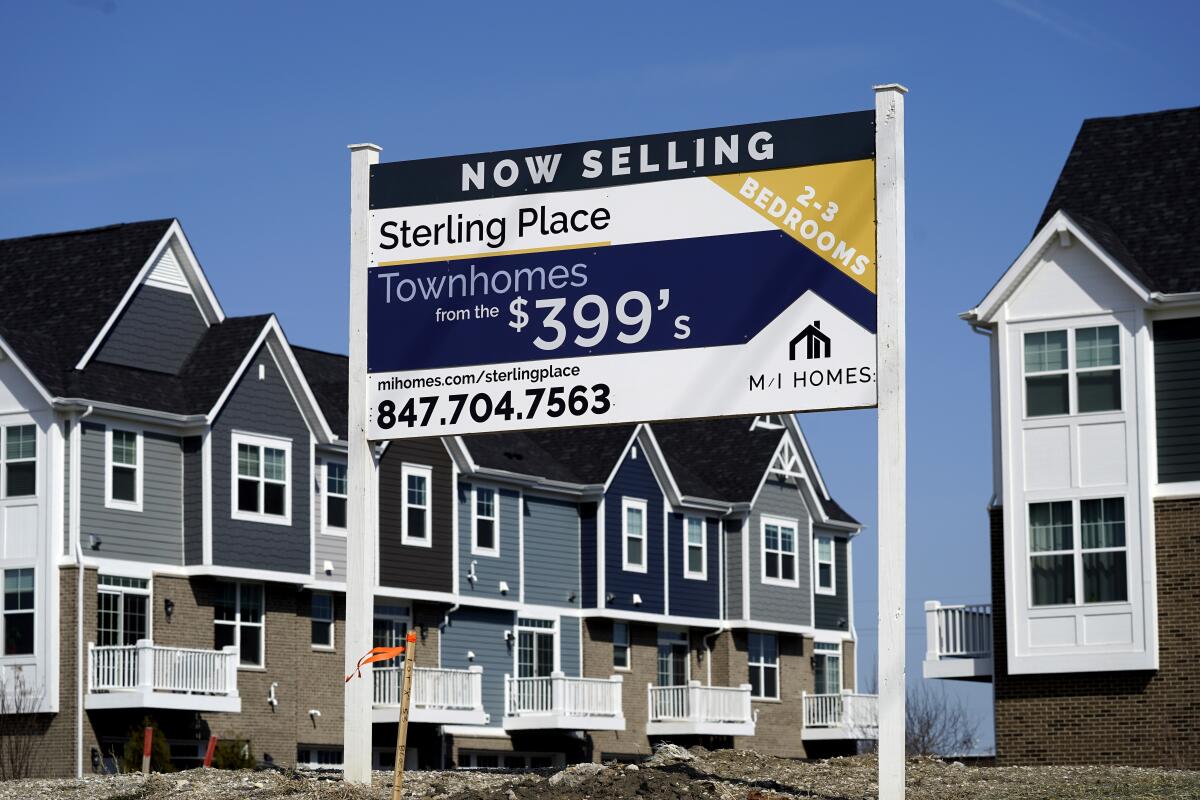In a hot market, companies compete with would-be homeowners

- Share via
Soaring home prices and rents are fueling real estate companies’ appetite for houses, adding unwelcome competition for many would-be home buyers.
The number of residential properties bought by companies or institutions hit an all-time high of 67,943 in the second quarter, according to Redfin, a Seattle online brokerage.
That’s a more than twofold increase from a year earlier, when the pandemic temporarily stymied the real estate market. It also represents 15.9% of all the properties sold in the April-to-June quarter, or just below the record high 16.1% share of sales in the first quarter of 2020, Redfin said.
The data, which go back to 2000, include all residential property types, including apartment buildings and condos. It excludes purchases by small, individual investors.
When looking at only single-family home sales, companies accounted for 16.1% of all purchases in the second quarter, Redfin said. Ten years ago, it was 8.4%.
Homes are flying off the market at a record pace thanks to a perfect storm: pandemic-induced demand for more space, low supply, and apps that make it easier to view, bid for and buy houses — all with a few swipes and clicks.
The trend adds challenges for would-be home buyers, especially many first-time buyers already facing stiff competition for affordable homes at a time when the inventory of properties on the market is near all-time lows and prices continue surging.
The S&P CoreLogic Case-Shiller 20-city home price index climbed a record 19.1% in June from a year earlier, as too few homes were available to buy and low interest rates enabled affluent buyers and real estate investors to pay more.
“When you have investors in a limited-supply market and they’re coming with cash, they’re able to outbid any regular home buyer,” said Sheharyar Bokhari, senior economist at Redfin.
Real estate investors’ effect on the market for single-family homes is more noticeable now because competition has grown so heated that homes often sell within days.
“Homes aren’t staying on the market very long,” Bokhari said. “People are getting frustrated losing bidding wars, especially if they lose to a [company] flush with cash.”
Real estate investment trusts and other companies have traditionally owned apartment buildings, but the housing bust of the mid-2000s helped usher in a wave of Wall Street investment in previously owned single-family houses.
Investment funds such as Blackstone Group bought up thousands of foreclosed and distressed homes. Many of the properties were converted to rentals. And even though the housing market has more than bounced back since then, a dearth of homes for sale and surging demand for rental housing have motivated Wall Street to stake its investment on renting single-family homes, rather than selling them during a housing market thirsty for inventory.
Blackstone, which spun off single-family home rental company Invitation Homes in 2017, agreed in June to buy Home Partners of America, which buys and then rents out homes.
For some would-be home buyers frustrated by the priciest housing market in decades, renting a house is the next best thing, and that’s helping drive up rents, which jumped 7.5% nationally in June from a year earlier, according to real estate data firm CoreLogic.
Not all real estate companies are in the business of renting houses. Many flip homes they buy. And there are so-called “iBuyers,” companies such as Zillow, Redfin and Opendoor that buy homes, typically from sellers who want to sell their home quickly, and then put the homes back on the market.
Still, nationally, investors bought more homes than they sold in the first half of this year, according to data from Realtor.com.
“In the early months of the pandemic they were adding to inventory, and it was also the case through the spring and early summer months of 2019, but in general, throughout most of this data history, we’ve seen more investor buyers than we have investor sellers,” said Danielle Hale, Realtor.com’s chief economist.
The competition would-be home buyers face from big real estate investors is something the Biden administration is hoping to mitigate as part of a broader initiative aimed at addressing the housing supply shortage and reducing price pressures in the housing market.
Last week, the White House said it was ordering federal housing finance agencies to give certain buyers and nonprofits a 30-day exclusive window to make offers on more than 12,000 homes that failed to sell in foreclosure auctions.
More to Read
Inside the business of entertainment
The Wide Shot brings you news, analysis and insights on everything from streaming wars to production — and what it all means for the future.
You may occasionally receive promotional content from the Los Angeles Times.











